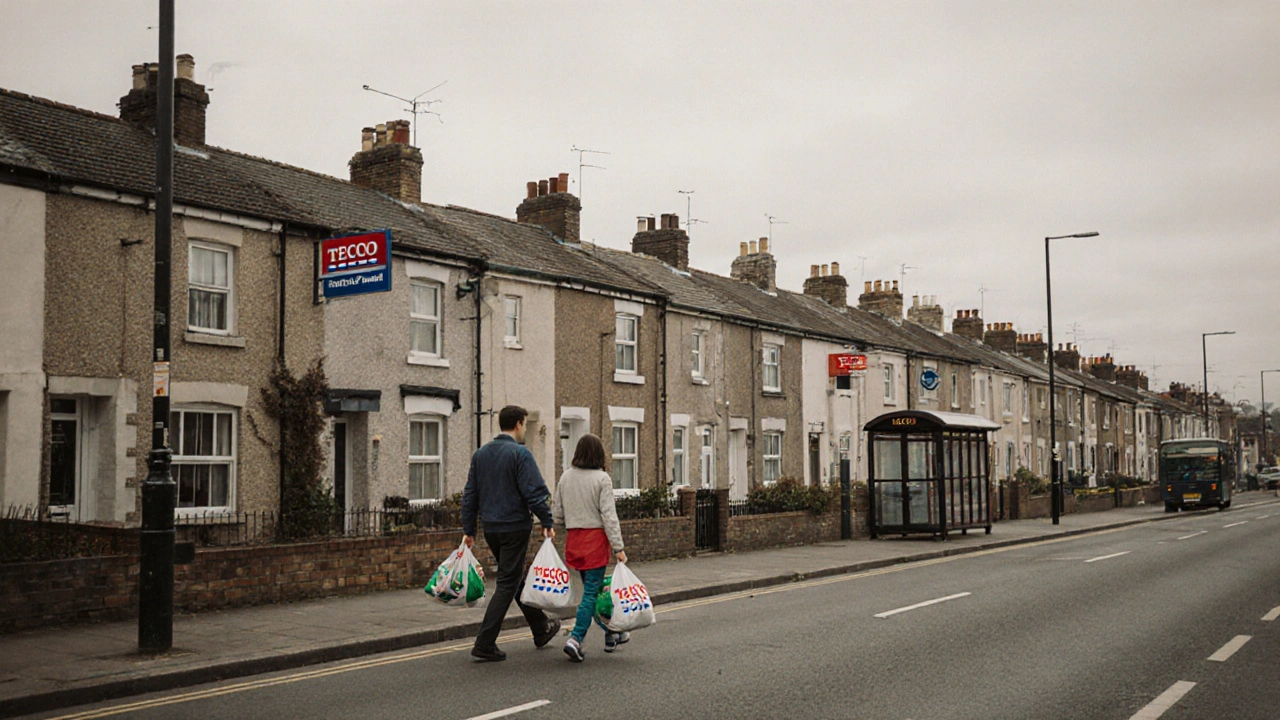US vs UK cost of living: What really matters when you compare prices
When people ask US vs UK cost of living, a direct comparison of everyday expenses between the United States and the United Kingdom. Also known as transatlantic living costs, it’s not just about salaries—it’s about what your money can actually buy on the ground. The answer isn’t simple. In some places, like London or New York, rent eats up half your paycheck no matter which side of the Atlantic you’re on. But in other areas, the difference is stark—and it’s not always where you’d expect.
Take housing costs UK, the price of renting or buying a home in Britain. In the UK, even outside London, you’re paying more for smaller spaces. A two-bedroom flat in Manchester might cost £1,200 a month. In Chicago, you could get the same size in a better neighborhood for $1,100. But here’s the catch: UK rent often includes bills. In the US, you’re adding £150–£250 extra for electricity, gas, and water. Then there’s healthcare costs US, the price of medical care in America without universal coverage. In the UK, a trip to the doctor is free at the point of use. In the US, even with insurance, a simple visit can cost $200–$500. A broken bone? That could be $10,000 in the US. In the UK, it’s nothing. And that’s not a small detail—it’s life-changing.
Food’s another story. A pint of milk costs about the same. A loaf of bread? Nearly identical. But a decent restaurant meal in London might set you back £25. In Atlanta, you get the same meal for $18. Groceries? US prices are lower on average, but the UK has more consistent pricing across regions. The US has big box stores and bulk deals. The UK has fewer chains, but more local markets and better public transport to get to them. And then there’s wages. The UK minimum wage is £11.44 an hour. The US federal minimum is $7.25—but many states pay more. Still, after taxes and rent, a lot of Americans are left with less than they think. Meanwhile, UK workers get 28 days of paid holiday. In the US? Many get zero. That’s not a perk—it’s a standard.
What this all adds up to is a simple truth: the US vs UK cost of living isn’t about which is cheaper—it’s about which system protects you better. The UK doesn’t have lower prices everywhere, but it has fewer financial shocks. The US has more cash in your pocket upfront, but you’re always one bill away from disaster. If you’re thinking of moving, don’t just look at salary numbers. Look at what’s covered. Look at what’s not. Look at how much stress you’re buying with every paycheck.
Below, you’ll find real stories and data from people who’ve made the switch—or are trying to. Whether it’s about the NHS, student loans, childcare, or just how much a cup of coffee costs, these posts cut through the noise. No fluff. Just what it actually feels like to live on either side of the ocean.
Is it cheaper to live in the US or the UK? Cost of living comparison 2025
Is it cheaper to live in the US or the UK? In 2025, healthcare, childcare, and groceries cost less in the UK. Housing and gas are cheaper in the US. The real difference? Risk. The UK offers stability. The US offers higher pay-with hidden costs.
